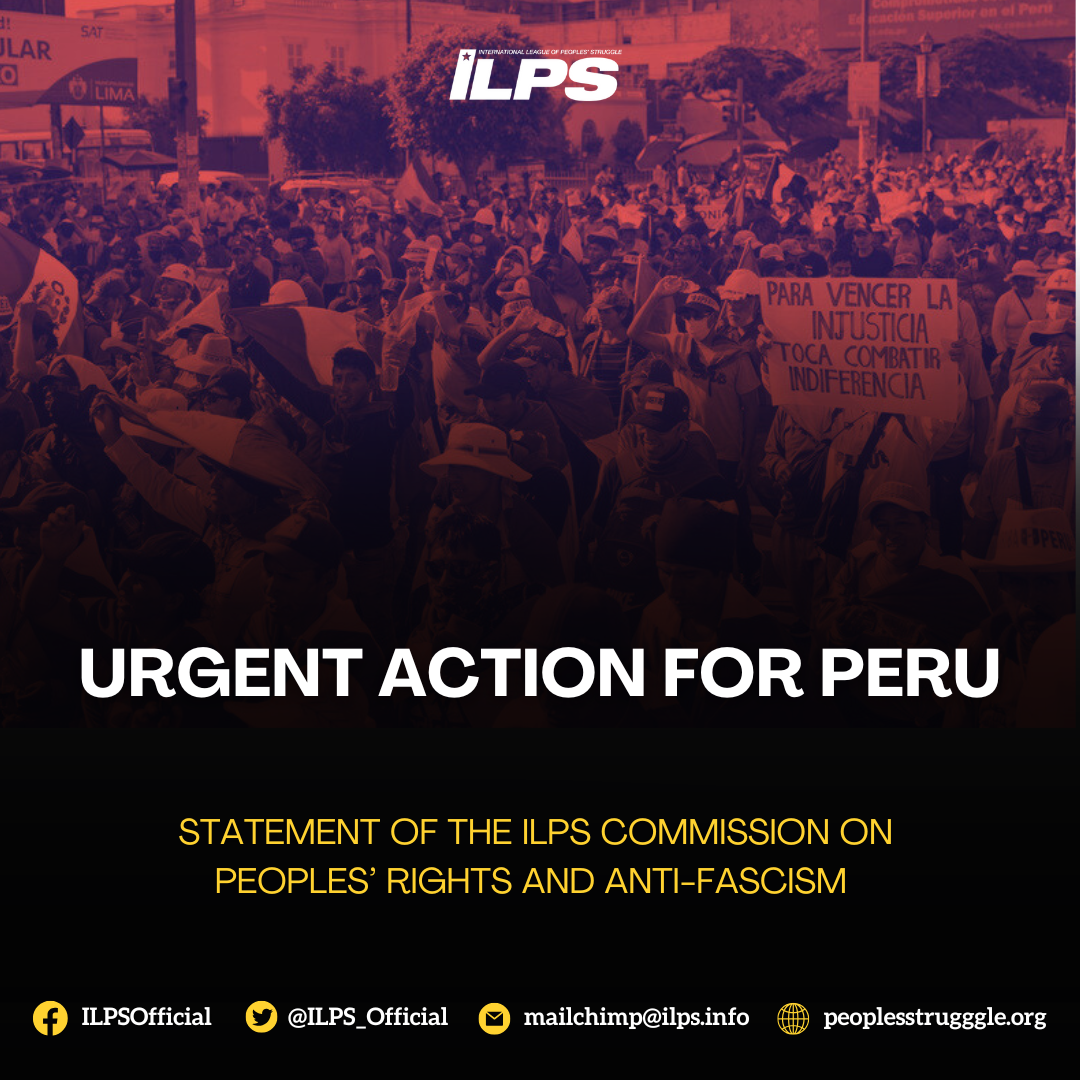The International League of People’s Struggle (ILPS) Asia Pacific extends solidarity to the protests for democratic rights and reforms in Thailand; and condemns the repressive actions by the Thai government against the protesters. By all indications, the military junta is gearing up for even worse and widespread clampdown on protests sweeping the land. The current protest in Thailand have swelled from its humble beginnings in February 2020. In the past few weeks, tens and thousands of people are pouring into the streets of the capital Bangkok to air their demands. With young people initially serving as the core of protest, the ranks of those going out in the streets have diversified to include the working people of Thailand. In the recent weeks, a call for a general strike have been brewing, along with stronger presence of other democratic sectors of the country.
The COVID19 added another blow to the lives of the working people. Before COVID19, close to 50% of the working people outside of agriculture were in the informal sector. With the closedown of many parts of the service industry, those in the informal sector have lost their source of income, while remaining outside of the formal social security system. The recent borrowing of the Thai government worth 60B USD, purportedly to provide stimulus to those who are in need, has failed miserably, as only a handful have received support. The drive of neoliberalism to make more widespread contractualization and informalization of labor to extract the biggest profit of capitalists is evident in Thailand as in Indonesia where protests have been sustained against the anti-worker Omnibus Law. Similar also to other countries, the Thai government has used the pandemic to impose control in mobility.
However, even the fear of the pandemic cannot hold back the rising indignation against the economic and political crisis. Among the key demands is the resignation of the Thai Prime Minister Prayut Chan-o-cha. Despite the recent elections held in 2019, the Thai people saw the election as merely a democratic sugar-coating to the military dictatorship since the 2014 coup. Constitutional reform is also being demanded by the Thai people. During the rule of the military junta, a reform in the Thai constitution in 2017 further entrenched the military control through the letter of the law. This has led to more restrictions in the democratic rights of the Thai people. The demand for a reform in the monarchy is among the key demands of the current movement. Many Thai people are witness to the vast wealth of the monarchy, with reports stating that the king is worth 40B USD. The lese majeste law is deemed by democratic forces as a tool to suppress and punish dissent of the people. This archaic law has also been deemed, especially by student protesters, as influential in keeping the educational system teach blind subservience to powers. The demands of the Thai people have been met with intense suppression and repression by the current regime of Chan-o-cha, with violent dispersals enacted by the security forces. Peaceful assemblies have been banned and media, including social media is being gagged. Multiple arrests were also made including personalities of groups involved in the actions. Following the growing protests, the government is set to intensify the repression with curfews and stricter rules on gathering reportedly in the offing. Despite the repression being employed by the Thai government, the protest continues to grow and is spilling over to other key cities and region of Thailand.
The struggle for democratic rights and reforms for workers, peasants, students and youth and other sectors in Thailand against the military junta and the elites is legitimate and deserves the solidarity of other struggling people in the region and in the world. We also join the call for the release of jailed activists and condemn any plans to intensify repression and crackdown on protests. The democratic rights and reforms struggle in Thailand is an opportunity for building and strengthening a movement that rallies the people for genuine national and social liberation.
Progressive forces should not allow interests of factions in the military and the ruling elite to hijack the actions and claim power from the current ruling clique just to perpetuate the system that breeds crisis, social inequality and repression. The ILPS-Asia Pacific shall continue to be vigilant on developments in the country and rally democratic forces in the region to extend support to the struggle of the Thai people.
Sarojeni Rengam ILPS Vice Chairperson for the Asia Pacific



